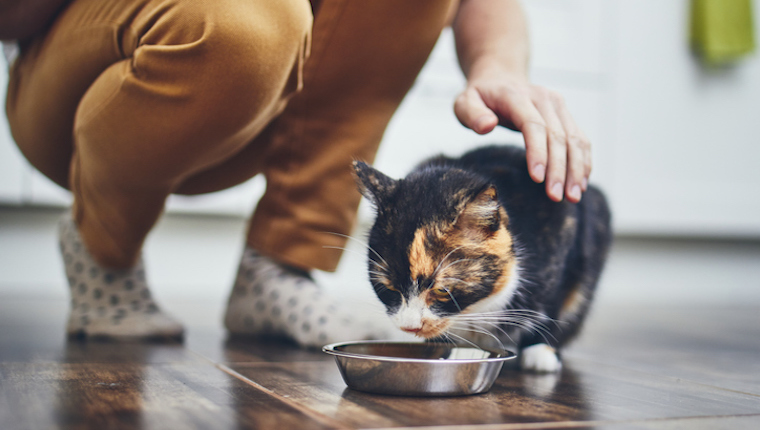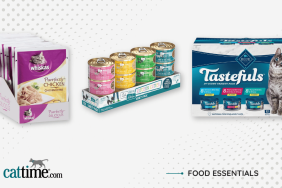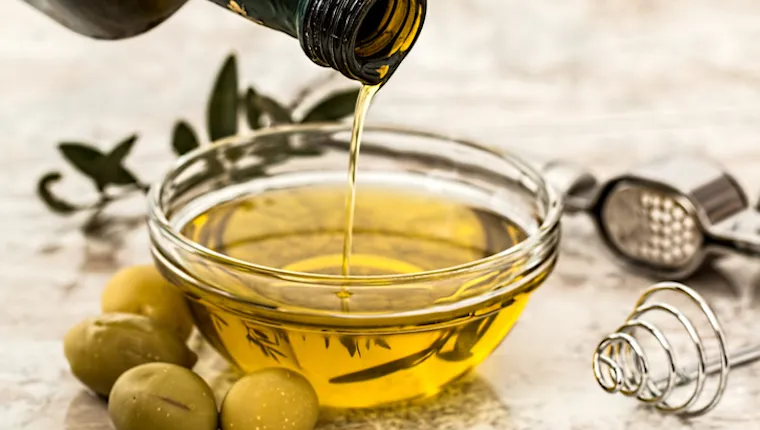
Can cats have olive oil? The short answer is yes, most cats can. However, there are a few things you should consider and precautions you should take before you add olive oil to your cat’s food.
Olive oil is a staple in most kitchens and usually suggested as a healthy addition to a human diet, especially with its antioxidant benefits. But did you know that olive oil isn’t just safe for cats, but also offers them health benefits, too?
Of course, you must always ask your vet before adding anything to your cat’s diet, including olive oil. It’s best to ask your vet first, as they know your individual cat’s health needs.
Let’s get into why olive oil is safe for cats and how your feline may become healthier when you add olive oil to their diet.
Is Olive Oil Safe For Cats?
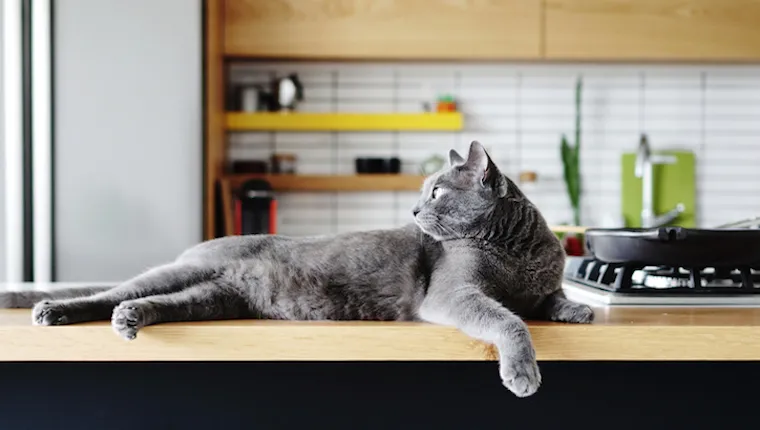
Olive oil is not considered a toxic food, and it’s generally safe for most cats to consume.
This also applies to cat-safe foods you might have cooked with olive oil, like chicken. However, some spices and other additions to recipes can be toxic to cats.
It’s best to make sure foods like chicken are plain except for the olive oil if you plan to share them with your kitty.
What Are The Health Benefits Of Olive Oil For Cats?
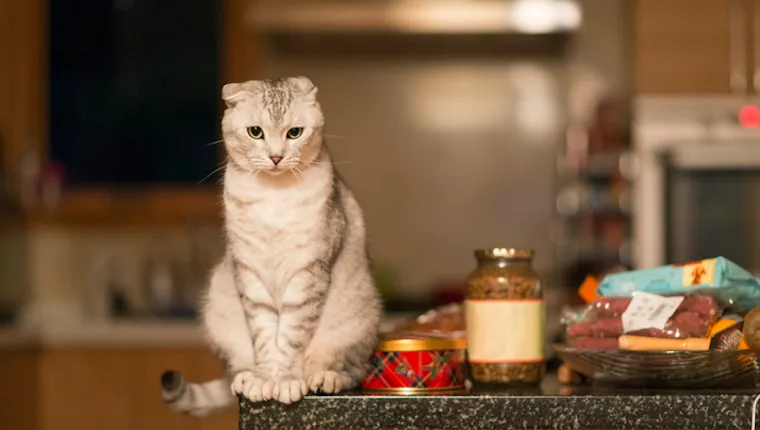
First of all, olive oil is a great antioxidant and contains a lot of vitamin E. This can help improve a cat’s immune system.
Because olive oil also contains monounsaturated fat, it can actually help ward off diabetes and associated cardiovascular ailments in felines. Olive oil can even help a cat lose weight due to the way the monounsaturated fats break down fat cells in the animal’s body.
Finally, eating olive oil can help keep a cat’s fur and skin in healthy and shiny condition. Some cases of feline constipation have also been cured by feeding the cat olive oil!
How Should You Feed Olive Oil To Your Cat?
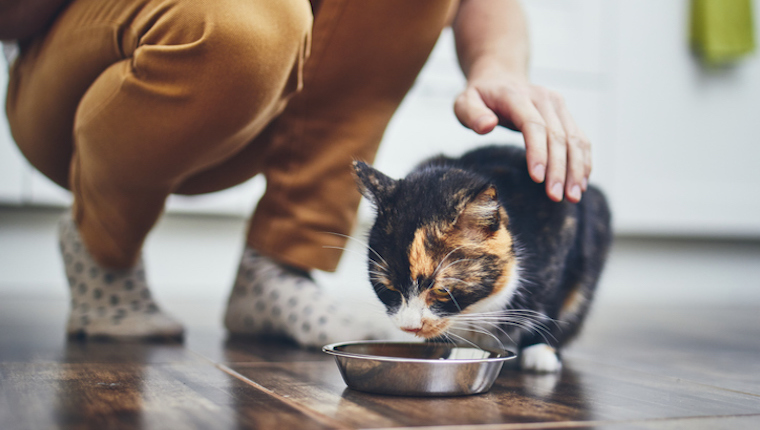
Obviously olive oil is a fat, so unless advised by your vet, you should not be adding too much of it to your cat’s diet. Common recommendations suggest adding one teaspoon of olive oil to your cat’s regular food two or three times a week.
Also, make sure that the olive oil you’re feeding your cat is genuine olive oil. The market is full of counterfeit olive oils, so look for one that’s marked “first cold pressed” on the bottle and lists the origin of the oil.
Has your cat ever had a taste of olive oil? Have you used olive oil to boost your cat’s health? Tell us about it in the comments below!
